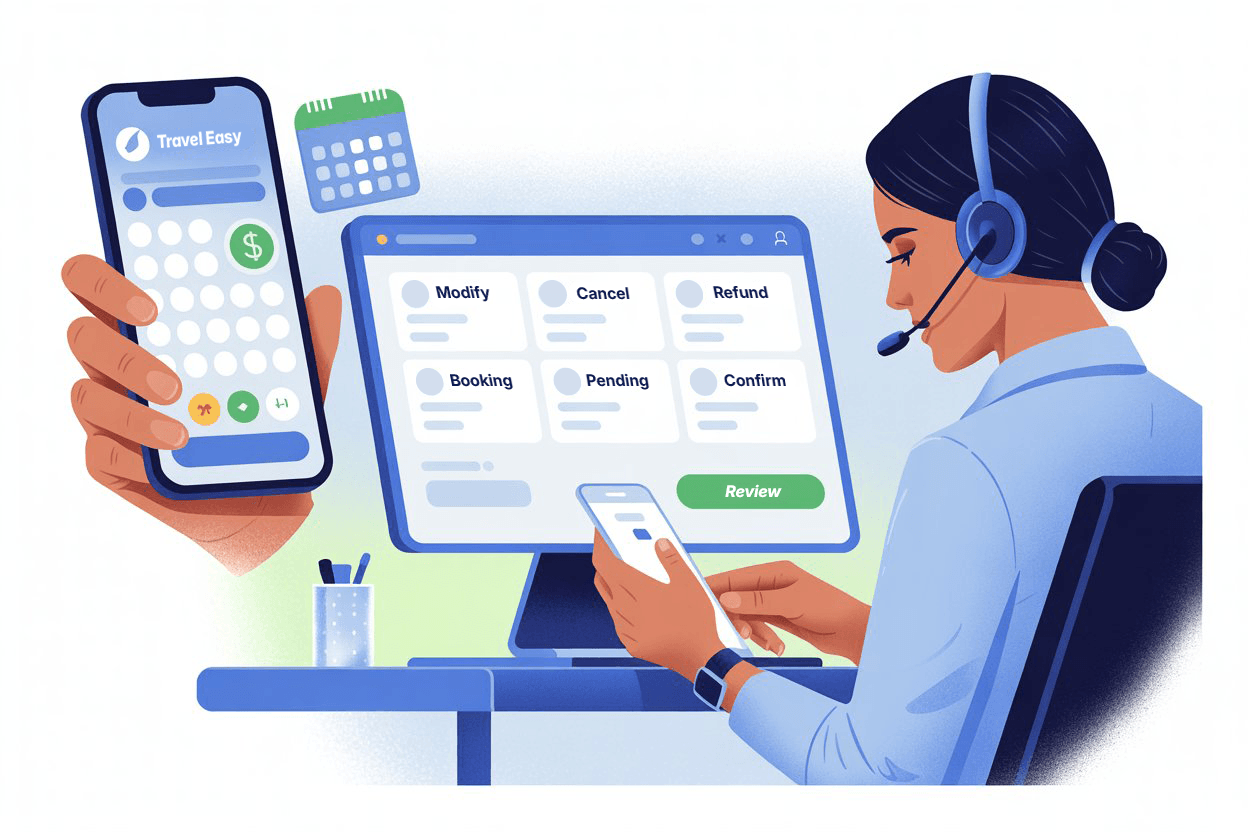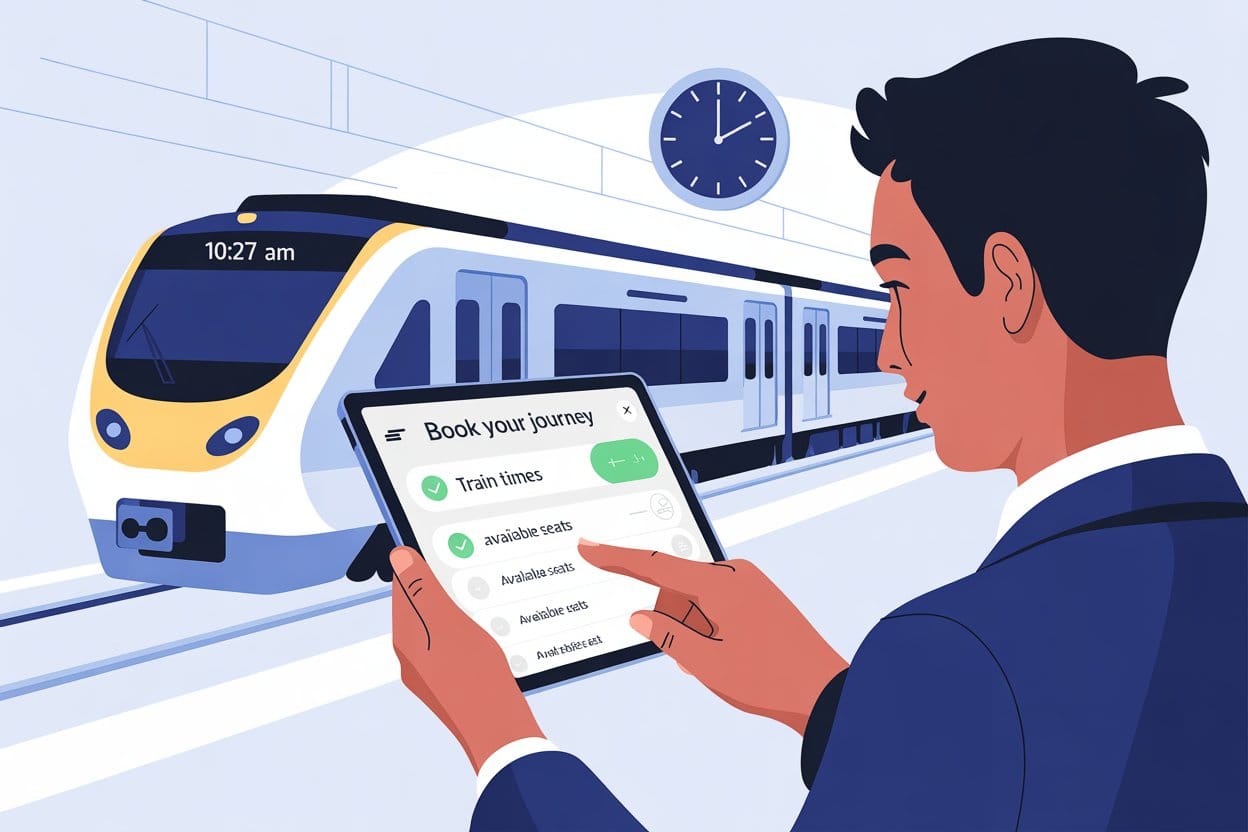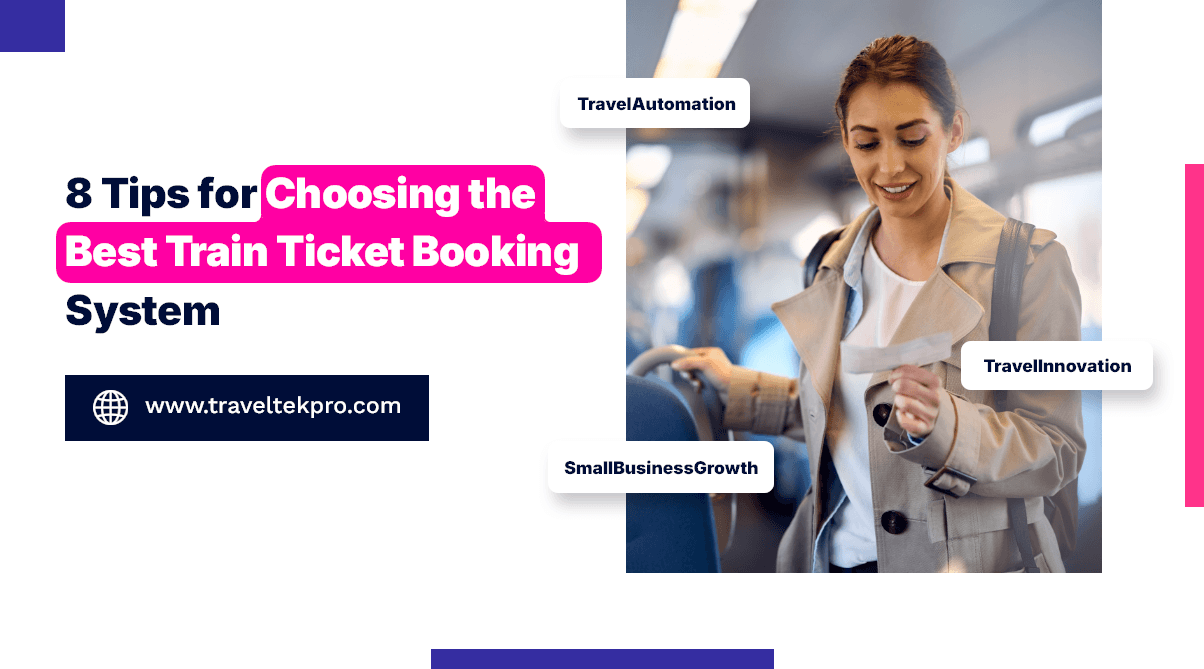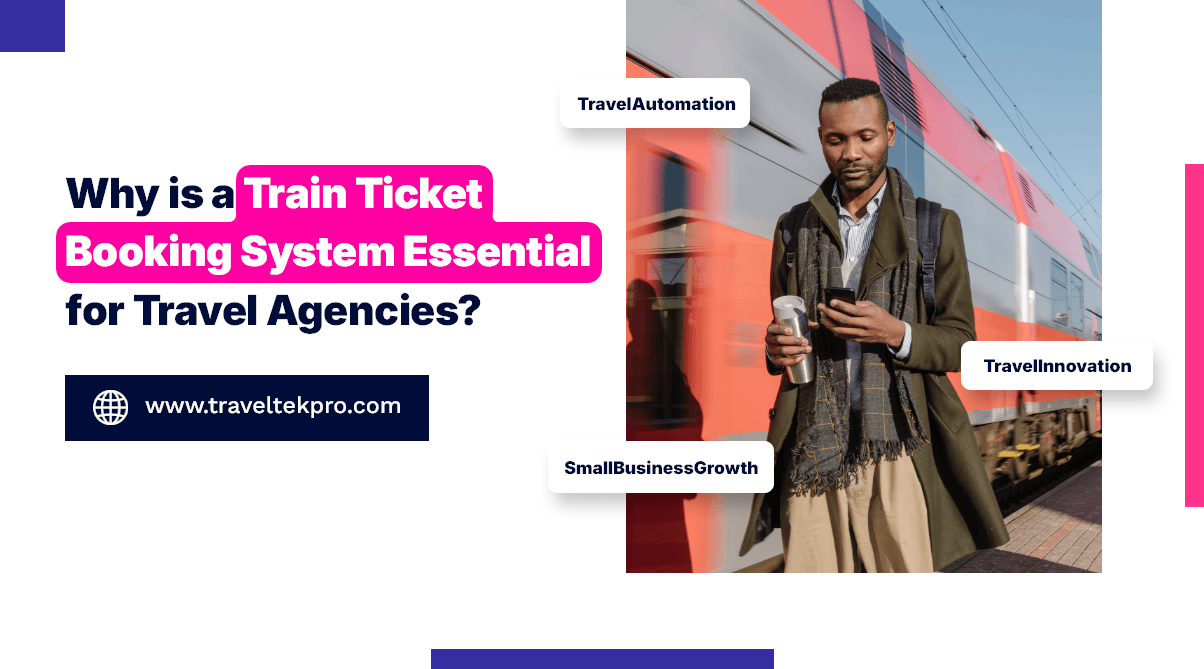8 Tips for Choosing the Best Train Ticket Booking System
Train travel is quickly becoming a preferred choice for many travelers today. Whether it’s a quick business trip, a scenic ride through the countryside or a cross-country journey, trains offer a convenient and eco-friendly way to travel. As a lot of people choose train travel over other options you must be ready to meet the demand as a travel agency. That’s where Train Booking Software truly comes in the picture. But with so many options available choosing the right one can be challenging, it’s not just about finding a system that works for you but it’s also about finding one that fits your business, which makes your team’s job easier and also keeps your customers happy. In this guide you can learn everything about the tips that will help you choose the best train booking system.
Prioritize comprehensive rail content and network coverage
One of the first things to look for in the Train Ticket Booking System is how many train networks it connects to. Does it offer routes from just local providers or does it connect you to a wide range of national and international services? More rail networks or systems connect to the more travel options you can offer to your clients. This means high speed trains overnight sleeper trains scenic routes and budget options all from one platform. It’s also easy for your agents if they don’t have to switch between different systems to make the bookings.
You can ask your potential providers if their system is integrated with major rail operators or railway group global distribution systems. Direct API connections are even better because they usually offer you real time access and fewer technical issues. So, you need to make sure that you are getting the most reliable coverage possible.

Understand real time availability and dynamic pricing capabilities
Just imagine this, your customer picks a train, chooses their seats and just when you are about to confirm it turns out the price has changed, or the seats are gone. Frustrating right? That’s why real time availability and pricing are so important. Train tickets can change quickly, especially for popular routes or even peak times. You need a Train Booking System that can truly show live seat availability and updated prices. This will help you prevent overbooking pricing errors and unhappy clients.
Also, dynamic pricing is common now. If your system can handle dynamic pricing, you will be able to offer the best deals and compete effectively. Ask the provider for a live demo and watch how quickly the system updates prices and availability. Make sure it’s fast, accurate and reliable.
Evaluate user friendliness and agent workflow efficiency
Let’s be honest, nobody wants to use a clunky system. If your Train Booking Software is challenging to use your team will get frustrated and productivity will take a hit. A user-friendly system helps your agents work faster and also with minimum errors. It also means less time spent training and onboarding. In a busy agency environment, every click and seconds count. You can also ask how many steps it takes to make a booking. Is the interface clean and easy to understand, are the search filters flexible and detailed? Better yet involve your agents and let them test it and share their feedback. After all they will be the ones using it every day.
Read More: Why Is a Train Ticket Booking System Essential for Travel Agencies?
Examine integration capabilities with existing system
Your Train Ticket Booking System should not live in a bubble. It needs to work with other tools for your business users like your CRM accounting software or even back-office system. When systems are connected you can automatically share customer details, sync bookings with accounting tools that run smooth operations across departments and save time by reducing manual data entry. This integration makes sure that your entire workflow is more efficient and at the same time it reduces the chances of human error. Firstly, you need to talk to the provider about API documentation, real world integrations or accounting tools like QuickBooks. Also check, do they support mid office systems used in the travel industry? The more flexible the integration options are, the better it is.

Look for strong booking management and post booking support
The job doesn’t end once the ticket is booked, sometimes your customers want to change their travel plans, cancel the booking or even request a refund. Your Train Booking System should make the task simple. If handling cancellations and changes is difficult it eats up your staff’s time and also annoys your customers. A good system should support easy modification cancellations and refund ticket issuance notifications changes. All without needing to contact customer support every time. During the demo you can also ask the vendor to test change or cancel the process. Is it simple? Does the system notify agents about schedule changes or refund rules? You can also ask about refund timelines or automation options.
Prioritize reporting and analytics features
If you cannot measure it, you cannot manage it. A strong Train Booking Software should come up with inbuilt reporting tools that help you understand what’s working and what’s not with the right reports you can track sales and revenue monitor agent performance identified top selling routes and trends can also adjust pricing strategies. Analytics can give you a real edge over competitors who are still guessing. Ask the provider for some sample reports to check if the system can generate daily reports based on time period route popularity agent sales and customer preferences. Just make sure the reports are customizable and easy to export and ideally can be integrated with your other business intelligence tools.
Consider scalability and future proofing
Your agency might be small now but what about next year? Choose a Train Ticket Booking System that can grow with your business. You don’t want to invest in a platform only to outgrow any year. It is a scalable system ensuring that you won’t have to switch providers as your customer base expands and you add more services. Cloud-based systems are usually the best option for scalability. They offer automatic data backup upgrades and easy access from anywhere. You can ask about the provider’s technology, the frequency of updates, and the road map. It’s always better to plan for growth than to scramble when demand rises.
Evaluate provider support and training
Even with the best Train Booking System we’ll face some occasional issues. That’s when customer support becomes your best friend. Reliable support means faster problem resolution, less downtime and happier staff and customers. Training is equally important, especially during onboarding. Your team needs to understand how to use the system properly, you will avoid any mistakes further. You can ask about support for our support channels or the availability of dedicated account managers. A provider that’s responsive and easy to work with is a huge asset.
So above all you need to know that choosing the best train ticket booking system from Traveltekpro is not just about ticking boxes on a feature list. It’s all about finding a long-term travel technology partner that helps your agency grow to operate smoothly and deliver the best possible experience to your clients. The right system will take the stress out of bookings and empower your agents to work faster while allowing your business to tap in the full potential of rail travel.
Read More: 7 Reasons to Hire a Dedicated Software Development Team in 2025
FAQ’S
1. What features should I look for in a train ticket booking system?
When choosing a train ticket booking system, key features to prioritize include real-time seat availability, dynamic pricing, multi-network rail content, smooth integration with CRM and accounting tools, easy modification/cancellation workflows, and in-depth reporting. These features help streamline operations, reduce manual effort, and provide a seamless booking experience for both agents and customers.
2. Why is real-time availability important for train bookings?
Real-time availability ensures that the pricing, seat selection, and booking status displayed to agents or end-users are accurate at the moment of purchase. This prevents common issues like overbookings, last-minute fare changes, or customer dissatisfaction due to outdated information. A reliable system updates availability instantly, giving your travel agency a competitive edge.
3. How can train booking software improve my travel agency’s efficiency?
Train booking software simplifies daily tasks by automating search, booking, and customer management processes, enabling your team to handle more clients with fewer errors. With built-in tools like reporting dashboards, integrated accounting, and modification support, agencies can reduce manual workload, optimize workflows, and respond faster to client needs — all of which lead to higher productivity and satisfaction.
4. Is integration with other systems essential for train booking software?
Absolutely. A well-integrated train booking system can connect with your CRM, accounting, and back-office tools to allow seamless data flow across departments. This reduces duplication, ensures consistency in customer information, automates financial reporting, and speeds up operations — helping your agency scale without friction as your client base grows.
5. What is dynamic pricing in train ticketing systems?
Dynamic pricing is a model where train fares change based on factors like demand, availability, booking time, and season. A system that supports dynamic pricing can help your agency secure the best fares for clients in real-time, keeping you competitive and boosting customer satisfaction. It also enables you to optimize margins by offering flexible pricing in high-demand situations.
6. How does a train booking system support scalability and future growth?
Modern train booking systems are designed to grow with your agency by offering cloud-based infrastructure, multi-user access, customizable modules, and regular system updates. This means as you expand services, onboard more agents, or enter new markets, your booking platform adapts without the need for costly replacements — making it a smart long-term investment.
Let's Start Your Project
Let us help you achieve your goals, by creating the best solution for you!


